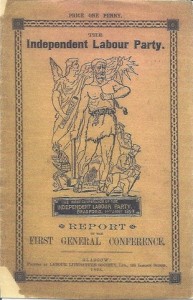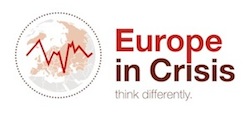This year marks the 120th anniversary of the ILP, a
milestone in British political history which the current ILP aims to mark and celebrate
over the next 12 months in a number of ways. Starting with our own Discussion Meeting as shown in our right-hand column.
The Independent Labour Party was founded on 13 January 1893 when some
120 delegates gathered at the Labour Institute in Bradford to create a
national political party to represent working class people and strive
towards a socialist society.

As well as some known figures, such as the chair, Keir Hardie –
already an Independent Labour MP – most of the delegates were young,
working class men and women, mainly from the industrial north of England
and Scotland, who had been active in local ILPs, trade unions and
trades councils.
They were pioneers, idealists in some ways, who knew they lived in an
environment hostile to socialist ideas, yet believed it was possible to
change people’s outlooks, to alter the political culture, and to create
a fairer, more equal, more democratic world.
The organisation they created has remained in continuous existence
ever since, surviving numerous ups and downs in political fortune, and
living through many changed and challenging circumstances over the last
12 decades.
Now known as Independent Labour Publications. the ILP has a(slightly) different
name, and it operates in vastly transformed political circumstances, yet
in many ways the ILP today continues to embody the spirit and purpose of
its founders.
Like them, it advocates an ‘ethical’ socialism, one based on essential humanitarian concerns. Like them, it has stated in
Our Politics
in 2011, “we hold fast to the ethics and principles relating to care
and compassion, fellowship and fraternity, mutuality and cooperation,
social, political and economic equity, and democracy”.
These have been the foundation of the ILP's politics for 120 years.
Throughout 2013, it aims to celebrate the birth and history of the
ILP, to remember the people who made it and gave their lives to it, and
to mark the survival of those political ideas by discussing their
relevance and importance today.
Here are some of the events and activities the ILP hope to be involved in,
either as authors and organisers, or as participants. They hope that you will
be involved too.
13 January: The 120th anniversary of the founding conference of the ILP
From 13 January: Online profiles of ILPers
The start of a series of profiles of figures from ILP history, some
well known, others unheralded, written by academics, historians,
activists and politicians. The series will begin with Fred Jowett,
profiled by Ian Bullock, and continue on the ILP website throughout the
year.
13 January: Lessons of ILP history
Barry Winter, former ILP general secretary and author of The ILP: Past & Present, speaking to Dronfield Labour Party Discussion Group on what today’s Labour movement can learn from ILP history. More details here.
2 March: ‘George Orwell: Homage to Catalonia 75 Years On’
An International Brigades Memorial Trust conference at Manchester
Conference Centre focusing on George Orwell’s account of the Spanish
Civil war and the contribution of the ILP volunteers. The ILP will have a
stall.
More details here.
May: The ILP School
The ILP’s annual conference event will focus on its 120th anniversary
with the theme of ‘Ethical Socialism: Past and Present’. Details of
date, time, length and venue are still to be confirmed.
May: Book launch – The ILP: Past & Present
Launch of a brand new edition of Barry Winter’s always popular
pamphlet on the history of the ILP. Last updated 20 years ago on the
ILP’s centenary, this is a newly re-written and re-published version.
More details to come.
(Note: the 1993 version of
The ILP: Past & Present can be read here.)
September: The ILP at Labour Party conference
Look out for ILP fringe meetings, including one on ethical socialism with MP
Jon Cruddas, the man leading Labour’s policy review. Dates and details to be announced.
Also, keep your eyes open for events at
Clarion House in Nelson (probably in the summer), and at the
Working Class Movement Library in Salford, hopefully in the autumn.
And don’t forget the limited edition
2013 ILP Wall Calendars,
especially published to mark the ILP’s 120th anniversary, and
illustrated by political cartoons from the 1890s and 1920s. Some still
available.
Order yours here.










